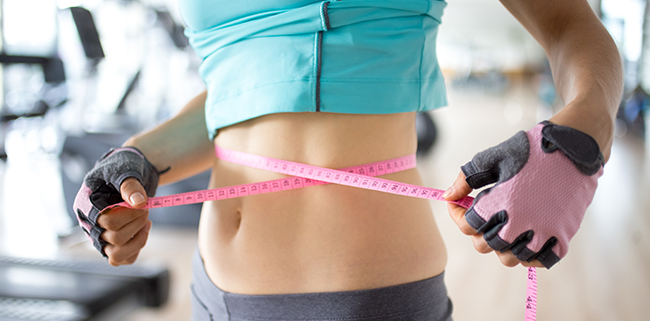Spirulina is an alga with a surprising nutritional composition. Extremely rich in protein and low in lipids, it is an ally of choice for athletes who want to boost their performance. In this short article, Spirulina and sport, origin, composition, benefits and use, everything about fresh spirulina.
What is spirulina
Spirulina is an alga, or rather a microalga, of blue-green colour. There are more than 1,500 species of microalgae of this type, with about thirty edible microalgae, including spirulina. In addition, spirulina takes its name from its spiral shape, which makes it easily recognizable.
The appearance of spirulina is not recent since its origins date back to 3-5 billion years, making it one of the first living organisms on Earth! It is cultivated in fresh water, especially in lakes in warm regions. There are important spirulina productions around the globe and in most continents, and Australia is not left out. Our Fresh Spirulina farm is located at southeast QLD. The fresh spirulina is grown and cultivated in greenhouses under controlled environment and conditions.
Many people in Central America and Africa have been consuming spirulina for decades, especially to meet the nutritional needs of pregnant women. In Europe, the use of spirulina in food has developed since the 1950s. At the time, several studies were conducted on the nutritional benefits of spirulina. The results have been more than convincing and consumption has continued to grow.
Spirulina is also widely used in humanitarian missions, to treat people suffering from poor nutrition. Because of its nutritional value, spirulina has many benefits. Thus, ‘WHO’ (World Health Organization) considers spirulina as the best food for humanity in the 21st century.
The incredible nutritional benefits of fresh spirulina
Spirulina contains a very large quantity of proteins, as well as the 8 essential amino acids. On a 100 gr extract spirulina, there are 60% (dry spirulina) to 71% (fresh spirulina) grams of protein, which is simply enormous. A very interesting contribution for athletes, but also complements the vegetarians, plant-based and vegans diets, for example.
Next, spirulina contains 15 to 20% of carbohydrates, ideal for boosting energy intake and providing muscles with the glycogen store needed for exercise. Spirulina also contains vitamins E, B, and K, minerals, trace elements, as well as essential fatty acids, enzymes and pigments with antioxidant properties.
Spirulina and sport, the interest for athletes

Spirulina and fat loss
Spirulina is very interesting for people on a diet, especially among athletes wanting to eliminate their fat. Spirulina makes it possible to have a sufficient nutritional intake to refuel and not develop deficiencies while being very low in calories and lipids (counts 6 gr of lipids per 100 gr of dried spirulina). If you are looking to lose weight without causing nutritional imbalance, spirulina is a food supplement of choice!
The benefits of spirulina on endurance
Spirulina can be beneficial for athletes who lack a little endurance. Indeed, endurance depends on the body’s ability to deliver enough oxygen to muscles and organs that are stressed during exercise. Spirulina contains the vitamin B complex, iron and copper, nutrients that play a vital role in the formation of red blood cells, which contain haemoglobin. Haemoglobin is responsible for transmitting oxygen to the muscles during sport (and everyday life). Fresh spirulina will improve the oxygenation of the muscles and will increase the maximum oxygen volume of the athlete.
Good muscle recovery with spirulina
The protein richness of Spirulina is very interesting in bodybuilding. After a session of bodybuilding, spirulina allows a good muscular recovery. Proteins and amino acids will allow the muscles to replenish their energy and the carbohydrates will recreate the glycogen stock spent during the effort.
Spirulina also contains essential fatty acids, pigments and enzymes, which will destroy free radicals and oxidative stress, thus avoiding inflammation.
Better performance thanks to spirulina
Fresh spirulina is ideal for recharging energy before training or before a competition. Spirulina and sport, thanks to its complete nutritional intake will compensate micro-deficiencies, which we do not necessarily detect or feel easily, but play heavily on our performance.
During the effort, spirulina helps to achieve better performance, to push its limits with muscles in good shape and better endurance.
How to use fresh spirulina?
Spirulina comes in many forms: capsules, capsules, tablets, and flakes, powdered, freshly frozen or fresh paste. The best and healthiest forms are the fresh ones. Fresh spirulina can be added and integrated with your drinks or desserts as it’s tasteless and odourless. The small servings allow you to take it at any time without the need to adapt your diet (your recovery drink or the drink while working out)
Fresh spirulina can be consumed while keeping a varied diet. For visible results, it is recommended to perform a course of two to three months (you will see and feel the difference after a few days to two weeks already, however, results vary from person to person). When you start taking spirulina, start with a light dose and then gradually increase according to your needs. For a sportsman, it is recommended to take 20 to 40 gr per day (1-2 servings) of fresh spirulina (e.g. before and after the workout, morning and evening.)
Alternatively, ideally space the taking of spirulina on your day: you can take it in the morning at breakfast, to fill up with energy; resume just before training; then in the evening in a drink to recover well and allow the muscles a good assimilation.